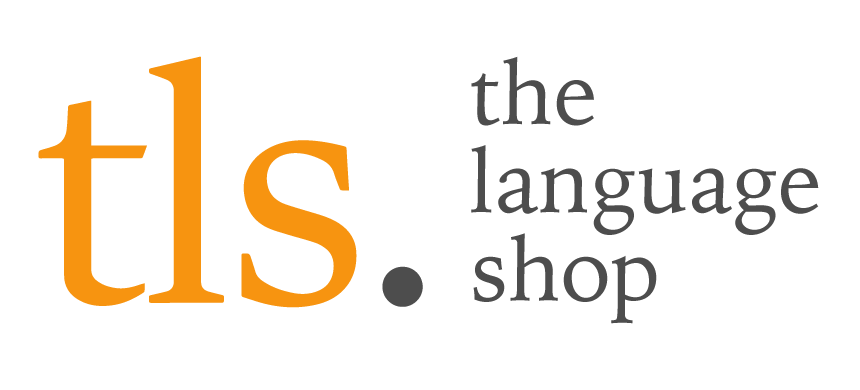Your month ahead - dates for your diary (March)
3, Purim, Judaism
A joyous festival, Purim is known for its fancy dress costumes worn by Jewish children. Its story tells of a time when Jews living in Persia were saved from extermination by a Jewish woman named Esther. The villain, a man called Haman, had plotted to overthrow the king and become leader himself, but Esther revealed his plans to the king, saving her people. In synagogues during Purim, the Book of Esther is read. When Haman’s name is mentioned, the congregation tries to drown it out.
29, Palm Sunday, Christianity
Held on the Sunday before Easter, this festival remembers the entry of Jesus into Jerusalem, before his arrest and crucifixion. As was customary in the day, people welcomed him into the city by scattering palm branches on the ground in front of him. Today, Christians honour this occasion with a special mass at church, where children hold palm fronds in a procession.
March's dates at a glance
Religious/cultural
1 – St David’s Day, Christian
1 – Feast of Orthodoxy, Orthodox Christian
2 – Nineteen-Day Fast begins, Baha’i
2 – Holika Dahan Hindu
3 – Phalguna Chaumasi Chaudas, Jain
3 – Chötrul Düchen, Buddhist
3 – Hina Matsuri, Shinto
3 – Magha Puja, Buddhist
3 – Purim, Judaism
3 – Holi, Hindu
4-6 – Hola Mohalla, Sikh
11 – Varshitapa Arambha, Jain
14 – Nanakshahi (New Year), Sikh
16 – Laylat Al-Qadr, Islam
16-20 – Hamaspathmaidyem Gahambar, Zoroastrian
17 – St Patrick’s Day, Christian
19 – Feast of Saint Joseph, Christian
19 – Chaitra Navratri begins, Hindu
19 – Ugadi (New Year), Hindu
20 – Eid Al-Fitr, Islam
20 – Shunbun No Hi, Shinto
20 – Ostara, Wicca and Pagan
20 – Nowruz (New Year), Persian and Zoroastrian
21 – Naw-Rúz, Bahá’í
24 – Rohini Vrat, Jain
25 – Chaitra Navapada Oli begins, Jain
25 – Annunciation of the Lord, Catholic Christian
25 – Annunciation to the Theotokos, Orthodox Christian
25 – Annunciation of the Virgin Mary, Christian
26 – Khordad Sal, Zoroastrian
26 – Rama Navami, Hindu
29 – Palm Sunday, Catholic Christian
31 – Mahavir Swami Jayanti, Jain
Awareness and Events
1 – Zero Discrimination Day
1 – International Wheelchair Day
3 – World Hearing Day
8 – International Women’s Day
15 – Mother’s Day
16-22 – Neurodiversity Celebration Week
20 – Spring Equinox
21 – International Day for the Elimination of Racial Discrimination
21 – World Down Syndrome Day
24 – World Tuberculosis (TB) Day
25 – International Day of Remembrance of the Victims of Slavery and the Transatlantic Slave Trade
30 – World Bipolar Day
31 – International Trans Day of Visibility
language fact file: Amharic
Amharic is spoken as a language in: Ethiopia
Number of speakers: 60 million (as first and second language)
Learn some: Common pleasantries include ‘selam’ (ሰላም), which means hello, and ‘ameseginalew’ (አመሰግናለሁ), which is thank you.
Fast facts:
Amharic is a semitic language, so has links to Arabic and Hebrew, and has its roots firmly in Africa. It is the world’s second most widely spoken semitic language (after Arabic).
It has a writing system often called Fidel, with more than 200 characters, each of which is made up of a consonant and a vowel. The script dates to between the first and fourth centuries but was adapted for Amharic around the thirteenth or fourteenth century. Thanks to this longevity, there is a wealth of literature available in the language, giving historical and cultural insight.
Outside of Ethiopia, Amharic has particular importance to followers of Rastafarianism, which takes its name from former leader Haile Selassie (whose non-royal name was Ras Täfäri). The language has been linked to the Pan Africanism movement and there have been several reggae songs written in Amharic.
The Linguist’s Story - February
Every month, we get to know a bit more about one of our linguists. This month, we introduce you to Tedla Amde, an interpreter working in Amharic.
Tell us about your work for TLS.
I work as an interpreter for TLS, providing Amharic-English and English-Amharic interpretation services, helping individuals and organisations communicate effectively and confidently.
What has been your favourite project at TLS?
One of my favourite projects with TLS so far was working in a primary school, interpreting for a mother whose child was severely autistic. The experience was incredibly rewarding. I was able to help her clearly communicate her needs and concerns, discuss what had been working and what hadn’t, and ensure all her questions were fully addressed. Being able to support meaningful communication between the family and the school made this assignment especially fulfilling.
What has been your biggest challenge?
One of my biggest challenges has been face-to-face assignments where a client does not attend the appointment. Considerable effort often goes into planning sessions, and travel and logistical costs may also be incurred.
Can you tell us about a time your work has made a difference to someone’s life?
To be honest, I truly feel that the work I do makes a real difference in people’s lives. When individuals can clearly communicate everything they need and put their points across in the way they intend, it can genuinely help address their needs and, in many cases, change their lives. This feels especially true when working with children with special needs and their parents. Supporting families through those conversations, easing parental anxiety, and helping to ensure families receive the support they need is the part of my work that I feel has the most meaningful and lasting impact.
Tell us something interesting about you.
I have lived in three different countries: Ethiopia, the UK, and the United States. I previously worked as a nurse, which has given me a broad and diverse professional background. This experience is especially valuable in my role as an interpreter particularly during health, physiotherapy or mental health appointments.
Your month ahead - dates for your diary (February)
9-15, Children’s Mental Health Week
Started by children’s mental health charity, Place2Be, this annual week raises awareness of the importance of good mental health in childhood. This year’s theme is ‘This is my place’, with a focus on creating a sense of belonging and recognising the value of having a safe place where you are included and loved. Find out more: About Place2Be's Children's Mental Health Week
18, Ramadan, Islam
The Holy Month for Muslims will begin around 18 February, but the start is subject to sight of the hilal, or new crescent moon. During Ramadan, observant Muslims fast during daylight hours, abstaining from food and drink, including water. The elderly, children and those travelling or menstruating are excused from the fast. As well as fasting, Ramadan is also a time for Muslims to increase their donations to charity, reflect, pray and spend time with family.
February's dates at a glance
Religious/cultural
1 – Triodion begins, Orthodox Christian
1 – Thaipusam, Hindu
2 – Tu Bishvat, Judaism
2 – Imbolc*/Candlemas Wicca and Pagan
3 – Lailat Al Bara’ah, Islam
3 – Setsubun-Sai, Shinto
8 – Sunday of the Prodigal Son, Orthodox Christian
14 – Saint Valentine’s Day, Christian
14 – Saturday of Souls, Orthodox Christian
15 – Meatfare Sunday, Orthodox Christian
15 – Nirvana Day, Buddhist
15-16 – Maha Shivratri, Hindu
16 – Shrove Monday, Christian
17 – Shrove Tuesday, Christian
17 – Lunar New Year, Confucian, Daoist and Buddhist
18 – Ash Wednesday, Christian
18 – Losar begins, Buddhist
18 – Ramadan begins, Islam
21 – Saturday of Souls, Orthodox Christian
22 – Feast of the Chair of Saint Peter, Catholic Christian
22 – Cheesefare Sunday, Orthodox Christian
23 – Great Lent begins, Orthodox Christian
23 – Phalguna Ashtahnika begins, Jain
25 – Rohini Vrat, Jain
25 Feb-1 March – Intercalary Days, Baha’i
28 – Saturday of Souls, Orthodox Christian
31 – Guru Harrai Jayanti, Sikh
Awareness and Events
1 – World Hijab Day
1-7 – World Interfaith Harmony Week
4 – World Cancer Day
5 – Time To Talk Day
5-11 – UK Race Equality Week
6 – International Day of Zero Tolerance to Female Genital Mutilation
9-15 – Children’s Mental Health Week
10 – Safer Internet Day
11 – International Day of Women and Girls in Science
12 – Red Hand Day for Child Soldiers
15 – International Childhood Cancer Day
17 – World Human Spirit Day
20 – World Day of Social Justice
21 – International Mother Language Day
language fact file: Kurmanji
Kurmanji is spoken as a native language in: Turkey, Syria and northern Iraq
Number of users: 17 million
Learn some: Greet people with ‘silav!’ or ‘merheba!’, and say goodbye with ‘bi xatire te’ (bi khatiray te).
Fast facts:
Kurmanji dialect is spoken by at least 60% of ethnic Kurds, the second most widely spoken Kurdish dialect being Sorani. Despite the fact that they are both Kurdish dialects, the two are mutually unintelligible, meaning that if you are booking an interpreter for a Kurdish service user, it’s very important to find out their native tongue!
Many Kurds were not educated in their mother tongue, so if you’re using the written word you may wish to ask if your service user would prefer to use a different language. These are commonly Arabic, Farsi and Turkish.
Speaking Kurmanji in public was banned in Turkey until 1991, which helped the language to become a symbol of cultural resistance. It is also the language of much Kurdish folklore, songs and literature, reinforcing its importance for native speakers.
The Linguist's Story - January
Every month, we get to know a bit more about one of our linguists. This month, we introduce you to Shaimaa Abdulkarim, an interpreter working in Kurdish dialects Bahdani and Kurmanji.
Tell us about your work for TLS.
I work as a remote Kurdish interpreter in Bahdini and Kurmanji. Since then, I have worked across a range of settings, including the NHS, social services, and other public and voluntary sector organisations.
What has been your favourite project at TLS?
I have enjoyed working with TLS, and my experience across the projects I have undertaken so far has been very positive. I have interpreted in numerous mental health sessions with different organisations, and I value all of them. One session I particularly valued involved supporting a psychology appointment, where I observed a high level of professionalism and expertise from the specialist, making it a very positive and memorable experience.
What has been your biggest challenge?
One of my main challenges is that some organisations request a Kurdish interpreter without specifying the required dialect. Kurdish consists of several main dialects, including Bahdini, Kurmanji, and Sorani, and it is important to identify the correct one for each booking. If there is any uncertainty about which dialect is required, the TLS team can support organisations in establishing the appropriate dialect for the individual booking.
Can you tell us about a time your work has made a difference to someone’s life?
On several occasions, I have interpreted for unaccompanied minors and looked-after children seeking asylum in the UK. Being their voice during discussions about their difficult journey, helping them know what their rights are, and reassuring them that they are in a safe country is always a privilege, and I believe it makes a meaningful difference to the young people’s lives.
Tell us something interesting about you.
An interesting fact about me is that I am a fluent Arabic speaker and genuinely enjoy learning new things, which is one of the reasons I work as an interpreter. This role allows me to learn something new every day through the people and situations I work with.
Your month ahead - Important upcoming dates for your calendar (January 2025)
4, World Braille Day
World Braille Day is a worldwide celebration that takes place every year on 4 January, celebrating the legacy of Braille, the system of raised dots used by many blind and partially sighted people to read and write. Braille was developed 200 years ago, having been invented by Louis Braille who was just 15 years old at the time.
13, Lohri/Maghi, Hinduism and Sikhism
Lohri or Maghi is a celebration from Punjab, traditionally a harvest festival marking the end of winter in the region. It is celebrated with the lighting of bonfires, which people often sing around and throw popcorn or chickpeas into the flames as offerings. Over the years, it has also become a way to welcome a new baby into families. The name ‘Lohri’ comes from the treats or snacks given to children who go from door to door, singing.
January's dates at a glance
Religious/cultural
1 – Solemnity of Mary, Mother of God, Catholic Christian
1 – Rohini Vrat, Jain
1 – Gantan-Sai (New Year), Shinto
1-7 – Hatsumode, Shinto
3-5 – Mahayana New Year, Buddhist
5 – Twelfth Night, Christian
6 – Epiphany, Christian
7 – Feast of the Nativity, Orthodox Christian
11 – Baptism of the Lord Jesus, Catholic Christian
12 – Swami Vivekananda Jayanti, Hindu
12 – Seijin No Hi, Shinto
13 – Lohri/Maghi, Hindu and Sikh
14 – Old New Year, Orthodox Christian
14 – Makar Sankranti, Hindu
14-17 – Pongal, Hindu
16 – Lailat Al-Miraj, Islam
16 – Meru Trayodashi, Jain
18-25 – Week of Prayer for Christian Unity, Christian
19 – Timkat, Ethiopian Orthodox Christian
19 – Feast of the Theophany, Orthodox Christian
23 – Vasant Panchami, Hindu, Sikh and Jain
25 – Conversion of Saint Paul, Christian
25 – Zacchaeus Sunday, Orthodox Christian
28 – Rohini Vrat, Jain
31 – Guru Harrai Jayanti, Sikh
Awareness and Events
4 – World Braille Day
18 – World Religion Day
19 – Martin Luther King Jr Day
24 – International Day of Education
25 – Robert Burns Night (Burns Night)
27 – Holocaust Memorial Day
language fact file: British Sign Language
British Sign Language is used as an official language in: the UK
Number of users: 150,000
Learn some: The quickest way to learn to communicate with BSL users is to finger spell – use the chart below from the British Deaf Association to master it!
https://rnid.org.uk/wp-content/uploads/2021/03/RNID_BSL_Finger_Spelling_Alphabet_Info.pdf
British Sign Language Fast facts:
You probably already know that there are national varieties of sign language, but did you know that BSL has regional accents? Just like spoken English, people using BSL from different parts of the country ‘sound’ different from each other.
Not all deaf people in the UK use BSL. It’s important not to assume that because someone is deaf, they will want sign language support.
BSL can be traced back to 1576! We know relatively little about BSL’s history but there is a record from this year showing that it was used at a wedding. The first school teaching BSL was founded in 1760, but discrimination against deaf people sadly persevered, and deaf children were punished in schools well into the 20th century for using sign language.
The Linguist’s Story - December 2025
Every month, we get to know a bit more about one of our linguists. This month, we introduce you to Nekeshia Foster, an interpreter working in British Sign Language (BSL).
Tell us about the work you do for TLS
I work with TLS services to provide BSL-English/English-BSL interpretation in a range of settings including appointments, meetings and events. I ensure that information is accessible to the Deaf and hearing community and help to create an inclusive environment. I truly enjoy working for TLS, being part of a team that prioritises inclusion and accessibility and I hope to continue making a meaningful impact across the organisation.
What's been your favourite project at TLS?
My favourite project was interpreting a birth - a particularly special one, as the Deaf mum was someone I had supported years earlier when she was at college. Being invited back into her life at such a significant moment was an incredible privilege and it felt like everything had come full circle.
What has been your biggest challenge?
My biggest challenge has been interpreting emotionally charged interactions whilst remaining calm, professional and completely focused on facilitating communication. These moments can be intense, however staying grounded ensures that clients still receive access to information when they need it most.
Can you tell us about a time your work has made a difference to someone's life?
I once interpreted a practical driving test for a Deaf client - and he passed! Seeing his reaction at the end was hugely rewarding. It was clear how much independence and confidence this achievement would give him and I felt genuinely happy to have played a small part in that milestone.
Tell us something interesting about you
When I'm not interpreting, I'm very much into interior design. Creating beautiful, functional spaces keeps me energised and brings a bit of balance to my busy weeks.
TLS selected as supplier to national NHS framework
We are delighted to announce our re-appointment as a supplier to the NHS Shared Business Services (NHS SBS) Interpreting and Translation Framework. The framework provides the NHS and wider public sector with access to our comprehensive range of interpreting and translation services, including face-to-face spoken language, British Sign Language (BSL), telephone and video interpreting. Its modular design allows customers to access services either via direct award or further competition, tailored to their specific needs, while also offering the flexibility to consolidate services under a single provider.
If you would like to discuss how our appointment on the framework could benefit your organisation, please get in touch.









